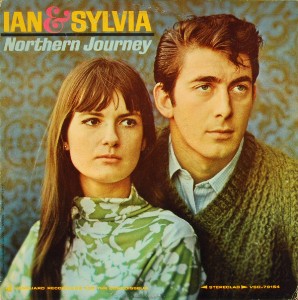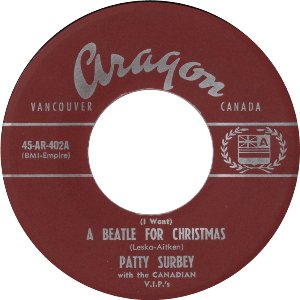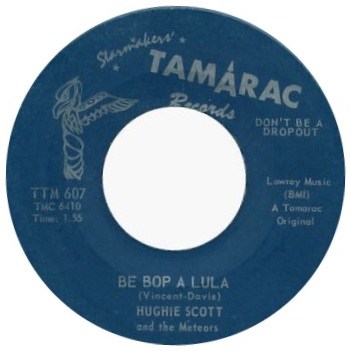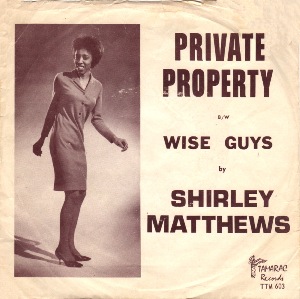| |
Ian and Sylvia

Northern Journey
Vanguard - 1964
Mike Milner
|
Ian and Sylvia were a couple who were part of the folk music boom of the early 1960s. Ian Tyson was originally from British Columbia and Sylvia Fricker from Chatham, Ontario. They met in Toronto through a mutual friend and started a professional musical relationship there. Although there was a folk music scene in Canada, the real action was in New York City. Ian and Sylvia felt that they had gone as far as they could in their native land, so in early 1962 they headed to New York to see if they could take the next step to a career in the music business.
It is difficult today to appreciate the influence and popularity that folk music had as the decade of the 1950s ended and the early 1960s began. There seems to be a general belief that the popular music of the era was rock and roll and that it all started with Elvis until the Beatles took over. In fact, folk music actually eclipsed what Elvis and his early rock and roll contemporaries had been doing. Folk was the music of choice of most of the young adult population, particularly those in college. By the time Ian and Sylvia headed to New York, groups such as the Kingston Trio were selling millions of records. In contrast to rock and roll, folk music was thought of as 'serious' music, wherein the lyrics dealt with contemporary social issues. In our current age of cynicism, it seems quaint that sincere young people strumming guitars and singing about progressive issues would be taken seriously, but in fact that musical genre was considered vital and important.
As is often said, timing is everything, and Ian and Sylvia were well-positioned to take advantage of the current trends in music. They were a striking couple, both visually and musically. Like any successful singing duo, their voices complimented each other and made an immediate impact on the listener. They arrived in New York ready to play, having honed their skills in Toronto and possessing a unique and powerful sound. They also had the great fortune to be selected as clients of Albert Grossman, a real up-and-comer in the management of artists. He understood the business and would ensure they could concentrate on their art while he looked after the commercial end of things.
After becoming clients of Mr. Grossman, the next step was for the duo to sign with a record label. Grossman already had a positive relationship with Warner Brothers after bringing them the folk trio Peter, Paul and Mary (whom he also represented). Peter, Paul and Mary had enjoyed commercial success right away, so Grossman's stock was high. However, Ian and Sylvia had other ideas. They preferred to go with a smaller independent record label that specialized in folk music and already had a certain cachet, and so they signed with Vanguard Records.
That decision turned out to be a smart one.
Being a smaller label that specialized in folk, there was no doubt that the label would be able to focus more of its attention on them. On the other hand, Vanguard would never be able to compete with a major label in the amount of support (in the terms of marketing and promotion) that it could provide. One advantage that Vanguard did have, however, was their approach to recording their artists. Rather than use a commercial recording studio, Vanguard would look for a location that had great natural acoustics. The recording equipment would then be brought to that location. The advantage to this method was that there was an emphasis on capturing the artist's unique and personal sound, as opposed to creating a sound in the studio and fitting the artist into it. While this approach eschewed the technical practices of overdubbing and editing that were to become standard procedure, it did capture the spontaneity and organic aspects that are part and parcel of musicians performing together.
In early March of 1964, Ian and Sylvia started work on what is generally considered their finest Vanguard album. Northern Journey was recorded in New York's Manhattan Towers Ballroom and released in September. The record is a potpourri of folk-styled music, with country and bluegrass influences alongside old English ballads. The songs showcase the amazing empathy that Ian and Sylvia had when they sang together. The harmonies are subtle yet beautiful, shifting throughout the songs as they sing them. And the instrumentation was typical of what you would expect from a folk music record of the time; guitar, auto-harp, mandolin and string bass. The musicianship is first-rate, and the instrumental sidemen acquit themselves admirably, with some fine guitar playing from John Herald. Northern Journey also featured two of their most well-known and loved songs, Sylvia's 'You Were on My Mind' (which the We Five would take up to the #3 slot the following year) and Ian's 'Some Day Soon'.
With the release of Northern Journey, it seemed that the future was bright for Ian and Sylvia. However, a musical transformation was in the air. 1964 was the year the Beatles arrived in America and changed popular music forever. That didn't occur overnight, but it would gradually render the idea of sincere young adults strumming acoustic guitars passe and bring back rock and roll with a vengeance. Ian and Sylvia would of course continue to make great music and would eventually evolve their styles to accommodate the shift in public tastes.
But that is a story for another day.
|
|
Suggestions

Patty Surbey
(I Want) a Beatle for Christmas / Christmas All Year 'Round - 7"
Aragon

Hughie Scott and the Meteors
I Will / Be Bop A Lula - 7"
Tamarac

Shirley Matthews
Private Property / Wise Guys - 7"
Tamarac
|








